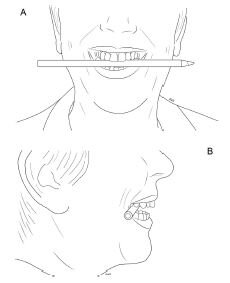According to the researchers at the University of South Australia, faking a smile can not only lift up your mood but also give you a more positive outlook on life. The study published in the journal Experimental Psychology has given new meaning to the phrase ‘fake it till you make it’.
With no end in sight for a pandemic that has infected 23 million people worldwide, it seems there are not enough reasons to smile this year. Despite it all, research states that we should all try and fake a smile to make this life a little bit easier to handle.
A group of 120 participants, 65 females and 55 males were recruited for the study and asked to hold a pen in between their teeth which forced their facial muscles to form a smile. The participants were then asked to evaluate the facial and body expressions of other individuals both with the pen in their mouths and without. Results found the pen-in-mouth scenario caused people to view others’ facial as well as body expressions in a more positive light.

to induce a covert smile: (A) a frontal view and (B) a profile view
(©Daniela A´ lvarez, 2020).
When your muscles say you’re happy, you’re more likely to see the world around you in a positive way
Dr. Marmolejo-Ramos
Dr. Marmolejo-Ramos, the lead researcher of the study, believes this occurs because when we fake a smile, the movement of our facial muscles stimulates the Amygdala which is the emotional center of the brain. This leads to a release of neurotransmitters that encourages an ’emotionally positive state’, irrespective of your mental state.
For mental health, this has interesting implications. If we can trick the brain into perceiving stimuli as ‘happy’, then we can potentially use this mechanism to help boost mental health.
Dr. Marmolejo-Ramos
Numerous studies in the past have encouraged the act of smiling, linking it to a longer and healthier life.
References:
Marmolejo-Ramos F, Murata A, Sasaki K, et al. Your Face and Moves Seem Happier When I Smile. Exp Psychol. 2020;67(1):14-22. doi:10.1027/1618-3169/a000470
Lawrence, Elizabeth M., et al. “Happiness and Longevity in the United States.” Social Science & Medicine, vol. 145, 2015, pp. 115–119., doi:10.1016/j.socscimed.2015.09.020.




